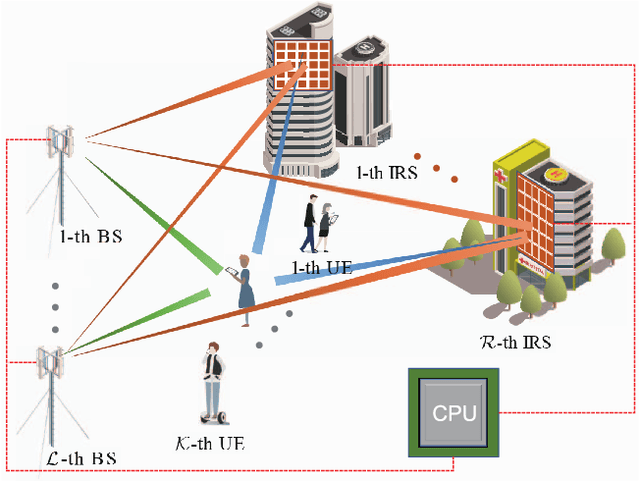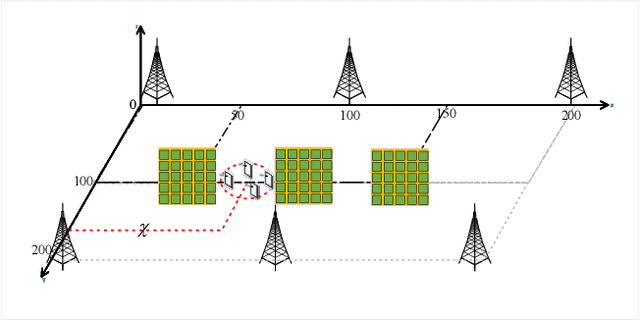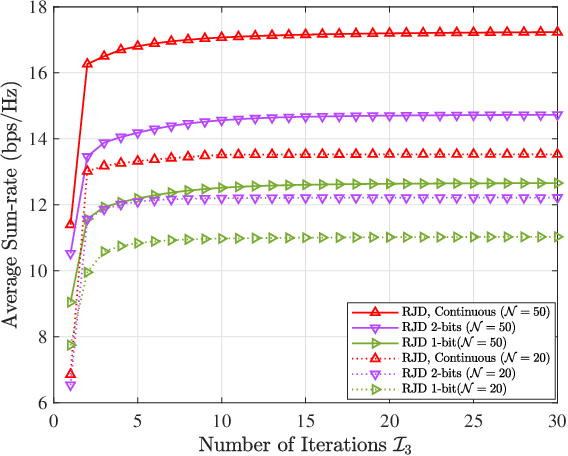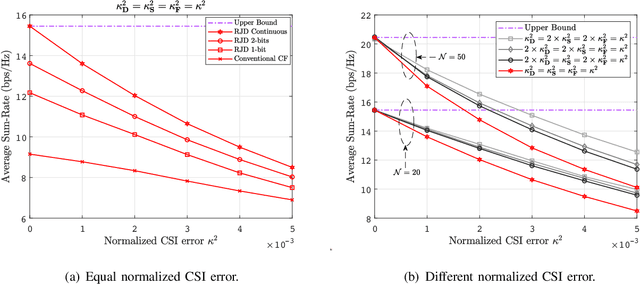Robust Joint Design for Intelligent Reflecting Surfaces Assisted Cell-Free Networks
Paper and Code
Jan 24, 2022



Intelligent reflecting surfaces (IRSs) have emerged as a promising economical solution to implement cell-free networks. However, the performance gains achieved by IRSs critically depend on smartly tuned passive beamforming based on the assumption that the accurate channel state information (CSI) knowledge is available at the central processing unit (CPU), which is practically impossible. Thus, in this paper, we investigate the impact of the CSI uncertainty on IRS-assisted cell-free networks. We adopt a stochastic method to cope with the CSI uncertainty by maximizing the expectation of the sum-rate, which guarantees the robust performance over the average. Accordingly, an average sum-rate maximization problem is formulated, which is non-convex and arduous to obtain its optimal solution due to the coupled variables and the expectation operation with respect to CSI uncertainties. As a compromising approach, we develop an efficient robust joint design algorithm with low-complexity. Particularly, the original problem is equivalently transformed into a tractable form by employing algebraic manipulations. Then, the locally optimal solution can be obtained iteratively. We further prove that the CSI uncertainty has no direct impact on the optimizing of the passive reflecting beamforming. It is worth noting that the investigated scenario is flexible and general in communications, thus the proposed algorithm can act as a general framework to solve various sum-rate maximization problems. Simulation results demonstrate that IRSs can achieve considerable data rate improvement for conventional cell-free networks, and confirm the resilience of the proposed algorithm against the CSI uncertainty.
 Add to Chrome
Add to Chrome Add to Firefox
Add to Firefox Add to Edge
Add to Edge